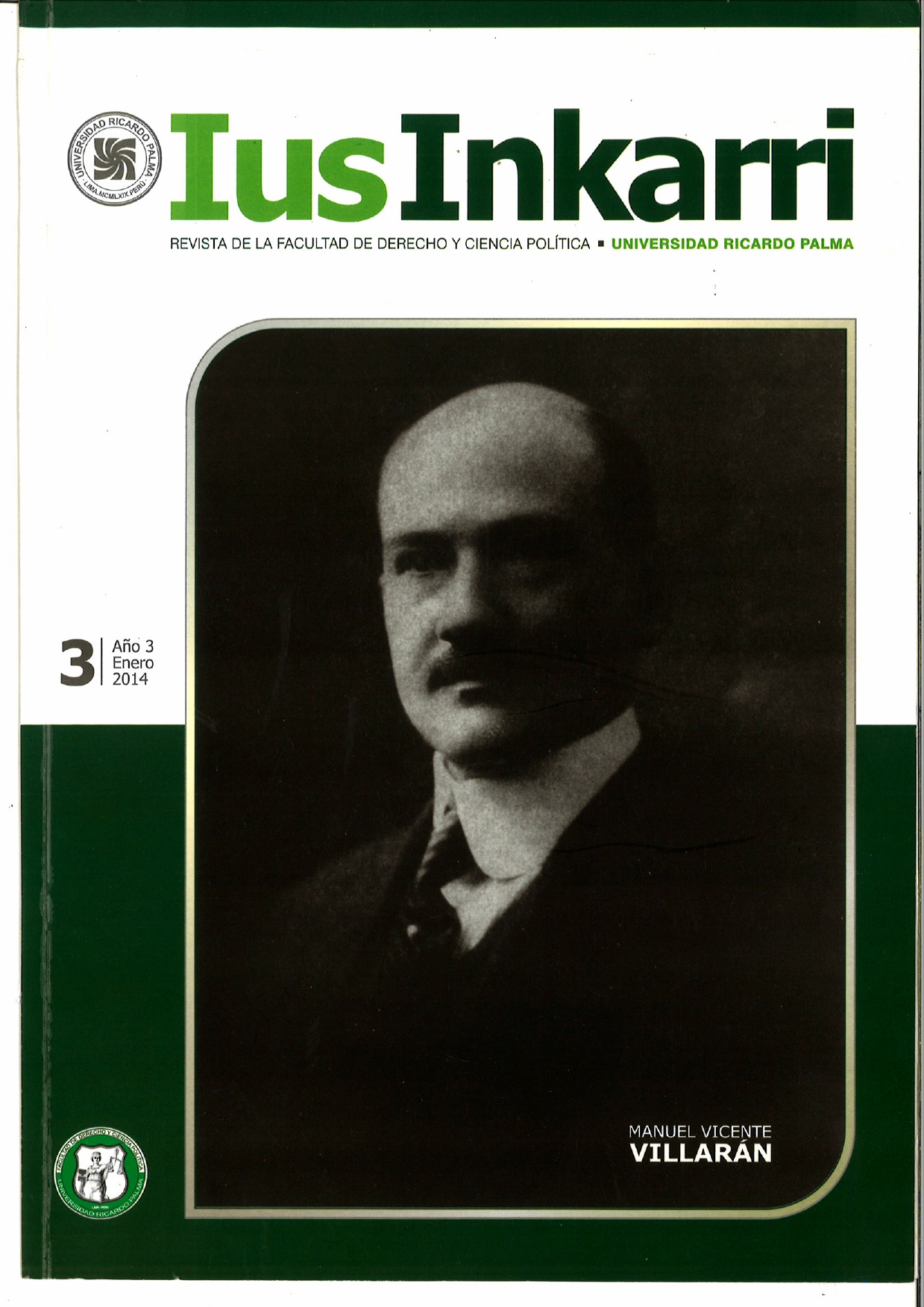The act in excess of powers of the representative of a legal person. Is it really ineffective?
DOI:
https://doi.org/10.31381/iusinkarri.vn3.4150Keywords:
representation, legal act, doctrine, comparative law, void act, ineffective act, theories, willAbstract
During good weather, force the current Civil Code, our Supreme Court held that the legal act concluded by an agent without power was voidable in accordance with the possibility of "cure" under Article 230 of the Civil Code. Thus, on the basis of an unwarranted reductionist approach also grossly confused the concepts of confirmation and ratification, it was understood that a "flawed" business could be void or voidable, depending on whether the defect containing or could not be remedied. There was no place for a third possibility.
Our doctrine in the civil field acts in the same way that the Supreme Court of the Republic, since it understands that legal transactions made by the manager that it has no power to assumptions that are very easily fall within the regulations contained mentioned in Article 161.
It is sufficient to note that a significant segment of opinion was holding, the paradigmatic assumptions that under Article 161 of the Civil Code relating to the business held by a manager who does not have sufficient authority.
Part of the national commercial doctrine is less specific since it does not indicate whether the legal transaction concluded by a manager is unable to void, voidable or unenforceable in the strict sense, as only indicative paraphrase section 13 of the Corporations Act-that such businesses do not require the society, which-certainly-true whether one considers that it is void or ineffective business strictly. Another important review in the trade area does seem to be more timely, noting that legal transactions performed by a manager unable to be ineffective, invalid.
Downloads
Downloads
Published
How to Cite
Issue
Section
License
Copyright (c) 2021 Jhushein Fort Ninamancco Córdova

This work is licensed under a Creative Commons Attribution 4.0 International License.













